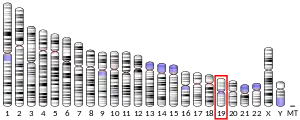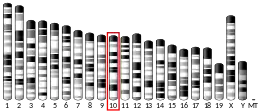| PCSK4 | |||||||||||||||||||||||||||||||||||||||||||||||||||
|---|---|---|---|---|---|---|---|---|---|---|---|---|---|---|---|---|---|---|---|---|---|---|---|---|---|---|---|---|---|---|---|---|---|---|---|---|---|---|---|---|---|---|---|---|---|---|---|---|---|---|---|
| Identifiers | |||||||||||||||||||||||||||||||||||||||||||||||||||
| Aliases | PCSK4, PC4, SPC5, proprotein convertase subtilisin/kexin type 4 | ||||||||||||||||||||||||||||||||||||||||||||||||||
| External IDs | OMIM: 600487 MGI: 97514 HomoloGene: 22495 GeneCards: PCSK4 | ||||||||||||||||||||||||||||||||||||||||||||||||||
| |||||||||||||||||||||||||||||||||||||||||||||||||||
| |||||||||||||||||||||||||||||||||||||||||||||||||||
| |||||||||||||||||||||||||||||||||||||||||||||||||||
| |||||||||||||||||||||||||||||||||||||||||||||||||||
| |||||||||||||||||||||||||||||||||||||||||||||||||||
| Wikidata | |||||||||||||||||||||||||||||||||||||||||||||||||||
| |||||||||||||||||||||||||||||||||||||||||||||||||||
Proprotein convertase subtilisin/kexin type 4 is an enzyme that in humans is encoded by the PCSK4 gene.[5][6]
References
- 1 2 3 GRCh38: Ensembl release 89: ENSG00000115257 - Ensembl, May 2017
- 1 2 3 GRCm38: Ensembl release 89: ENSMUSG00000020131 - Ensembl, May 2017
- ↑ "Human PubMed Reference:". National Center for Biotechnology Information, U.S. National Library of Medicine.
- ↑ "Mouse PubMed Reference:". National Center for Biotechnology Information, U.S. National Library of Medicine.
- ↑ Mbikay M, Seidah NG, Chretien M, Simpson EM (Jul 1995). "Chromosomal assignment of the genes for proprotein convertases PC4, PC5, and PACE 4 in mouse and human". Genomics. 26 (1): 123–9. doi:10.1016/0888-7543(95)80090-9. PMID 7782070.
- ↑ "Entrez Gene: PCSK4 proprotein convertase subtilisin/kexin type 4".
Further reading
- Seidah NG, Chrétien M, Day R (1995). "The family of subtilisin/kexin like pro-protein and pro-hormone convertases: divergent or shared functions". Biochimie. 76 (3–4): 197–209. doi:10.1016/0300-9084(94)90147-3. PMID 7819324.
- Bassi DE, Mahloogi H, Klein-Szanto AJ (2000). "The proprotein convertases furin and PACE4 play a significant role in tumor progression". Mol. Carcinog. 28 (2): 63–9. doi:10.1002/1098-2744(200006)28:2<63::AID-MC1>3.0.CO;2-C. PMID 10900462. S2CID 22849623.
- Bonaldo MF, Lennon G, Soares MB (1997). "Normalization and subtraction: two approaches to facilitate gene discovery". Genome Res. 6 (9): 791–806. doi:10.1101/gr.6.9.791. PMID 8889548.
- Malik S, Guermah M, Roeder RG (1998). "A dynamic model for PC4 coactivator function in RNA polymerase II transcription". Proc. Natl. Acad. Sci. U.S.A. 95 (5): 2192–7. Bibcode:1998PNAS...95.2192M. doi:10.1073/pnas.95.5.2192. PMC 19292. PMID 9482861.
- Wang Z, Roeder RG (1998). "DNA topoisomerase I and PC4 can interact with human TFIIIC to promote both accurate termination and transcription reinitiation by RNA polymerase III". Mol. Cell. 1 (5): 749–57. doi:10.1016/S1097-2765(00)80074-X. PMID 9660958.
- Li M, Mbikay M, Nakayama K, et al. (2001). "Prohormone convertase PC4 processes the precursor of PACAP in the testis". Ann. N. Y. Acad. Sci. 921: 333–9. doi:10.1111/j.1749-6632.2000.tb06988.x. PMID 11193847. S2CID 46125753.
- Strausberg RL, Feingold EA, Grouse LH, et al. (2003). "Generation and initial analysis of more than 15,000 full-length human and mouse cDNA sequences". Proc. Natl. Acad. Sci. U.S.A. 99 (26): 16899–903. Bibcode:2002PNAS...9916899M. doi:10.1073/pnas.242603899. PMC 139241. PMID 12477932.
- Clark HF, Gurney AL, Abaya E, et al. (2003). "The Secreted Protein Discovery Initiative (SPDI), a Large-Scale Effort to Identify Novel Human Secreted and Transmembrane Proteins: A Bioinformatics Assessment". Genome Res. 13 (10): 2265–70. doi:10.1101/gr.1293003. PMC 403697. PMID 12975309.
- Ota T, Suzuki Y, Nishikawa T, et al. (2004). "Complete sequencing and characterization of 21,243 full-length human cDNAs". Nat. Genet. 36 (1): 40–5. doi:10.1038/ng1285. PMID 14702039.
- Gerhard DS, Wagner L, Feingold EA, et al. (2004). "The Status, Quality, and Expansion of the NIH Full-Length cDNA Project: The Mammalian Gene Collection (MGC)". Genome Res. 14 (10B): 2121–7. doi:10.1101/gr.2596504. PMC 528928. PMID 15489334.
- Qiu Q, Basak A, Mbikay M, et al. (2005). "Role of pro-IGF-II processing by proprotein convertase 4 in human placental development". Proc. Natl. Acad. Sci. U.S.A. 102 (31): 11047–52. Bibcode:2005PNAS..10211047Q. doi:10.1073/pnas.0502357102. PMC 1182422. PMID 16040806.
This article is issued from Wikipedia. The text is licensed under Creative Commons - Attribution - Sharealike. Additional terms may apply for the media files.



